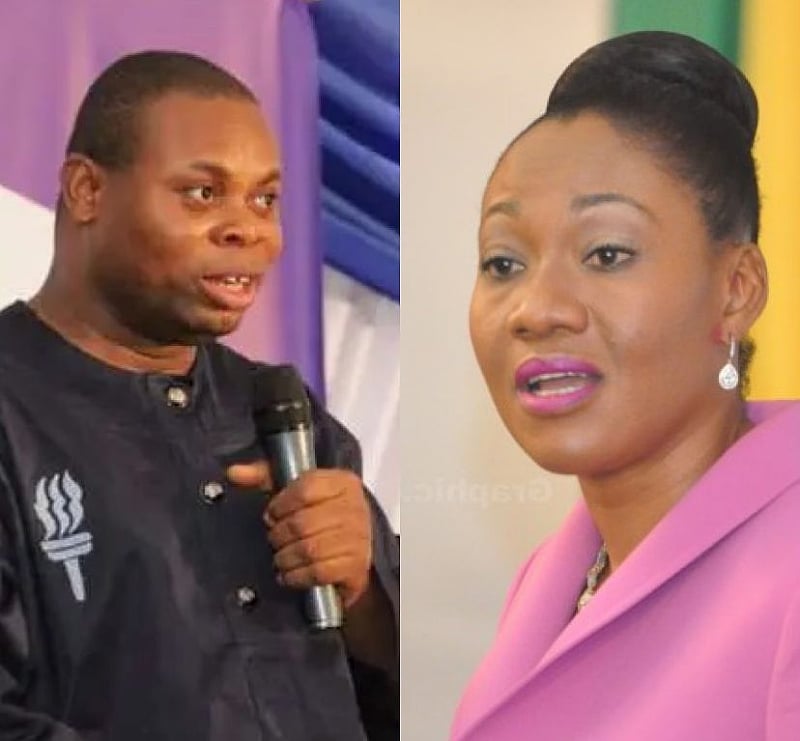Franklin Cudjoe, the founder of IMANI Africa, has recently voiced strong skepticism regarding the trustworthiness of Ghana’s Electoral Commission (EC). In a Facebook post dated October 2, he expressed his irritation at the repeated calls from EC Chair Jean Mensa for Ghanaians to place their faith in the Commission. Cudjoe cited a specific incident from the 2020 elections to bolster his argument: he recounted a meeting on November 30, 2020, where Mensa assured local chiefs that their constituents in the Santrokofi, Akpafu, Lolobi, and Likpe (SALL) areas would be eligible to vote. However, just six days later, right before the elections, the EC released a letter that abruptly declared these constituents ineligible, leaving them with no opportunity for explanation. This action, according to Cudjoe, unfairly influenced the outcome of the elections, solidifying the ruling New Patriotic Party’s (NPP) parliamentary majority in a manner he described as a planned act of gerrymandering in collusion with the government.
Cudjoe’s concerns about the EC are particularly significant against the backdrop of Ghana’s forthcoming 2024 General Elections. He emphasizes that while the EC has called for trust in their ability to manage a fair election, he believes Ghanaians must approach this mandate with caution and vigilance. The implications of the EC’s past actions have left a lingering distrust among sections of the populace, particularly regarding their capacity to conduct transparent and credible elections. EC Chair Jean Mensa had recently reiterated the Commission’s commitment to addressing all issues related to the voter register ahead of the elections, hoping to reassure citizens of a fair electoral process.
The complexities surrounding the relationship between the EC, the government, and the electorate in Ghana are underscored by Cudjoe’s observations. His recounting of events from the previous elections raises questions about the integrity of the EC, as those involved in the electoral process must be seen as fair arbiters rather than partisan entities. Cudjoe’s critique points to a broader issue of public trust in state institutions in Ghana, particularly given the critical role that these institutions play in the democratic process. The perception that the EC might act under government influence could jeopardize public confidence in upcoming electoral processes.
Furthermore, Cudjoe’s viewpoint resonates with many Ghanaians who have historically been wary of electoral fairness in the country. Concerns surrounding electoral credibility, transparency, and biases have been recurrent themes in Ghana’s political discourse, especially during election cycles. The integrity of the electoral system is foundational to a healthy democracy, and skepticism about the EC might reflect wider societal anxieties about governance and representation. This precarious situation exemplifies the urgent need for the EC to cultivate genuine trust through transparent operations and accountability in its processes.
In a time where calls for electoral reforms are growing, Cudjoe’s warning serves as a reminder that citizens must remain vigilant and engaged. The participation of the electorate in demanding accountability from institutions like the EC is crucial in ensuring that elections are conducted fairly and meaningfully. It is vital for the EC to not only communicate its intentions but also to take tangible steps to address past grievances and restore public confidence. This could involve fostering open dialogues with various stakeholders, increasing transparency regarding electoral processes, and implementing recommendations from past electoral assessments.
In conclusion, Franklin Cudjoe’s reflections shed light on the intricate dynamics between trust, electoral integrity, and governance in Ghana. His critique of the EC represents a broader discourse on the vital importance of electoral transparency and accountability. The upcoming 2024 General Elections will undoubtedly test the EC’s commitment to fair practices, and it remains to be seen whether they can reconcile past mistakes to ensure a credible electoral process. Ghanaians are called to approach the elections with a balance of trust and vigilance, actively participating in safeguarding the democratic ideals of their nation.


